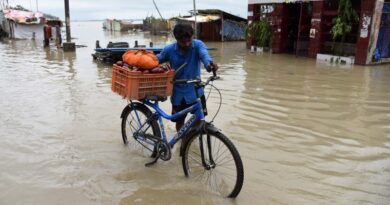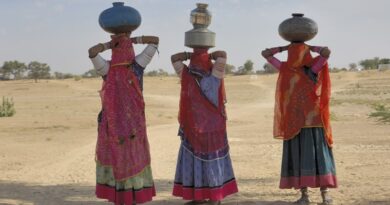Modi launches sewerage projects on Ganga in poll-bound Bihar; NGT rejects state’s time extension plea for STPs
Prime Minister Narendra Modi has inaugurated several water infrastructure projects including four sewerage treatment plants in Bihar as part of the ongoing Namami Gange and AMRUT programmes even as the National Green Tribunal (NGT) has rejected Bihar Government’s plea seeking extension of time for completion of sewage treatment plants for treating pollutants entering the Ganga.
Modi, who remotely inaugurated the projects in poll-bound Bihar, said the state will be among those where every household will have access to piped drinking water in coming years.
The Prime Minister said as many as 20 big and important cities in Bihar are located on the banks of the Ganga. Cleanliness of Ganga and its water has a direct effect on crores of people living in these cities.
Keeping in mind the cleanliness of Ganga River, more than 50 projects worth over Rs 6000 crore have been approved in Bihar. The Government is making efforts to install many water treatment plants in all the cities along the banks of the Ganga to prevent the water of dirty drains from falling directly into the river, he added.
Among the projects inaugurated are sewerage treatment plants at Beur and Karam-Leechak in Patna city as well as water-related projects in Siwan and Chhapra under the AMRUT programme. “That would be a big achievement – a matter of pride for Bihar,” he said.
Foundation stones were also laid for water supply projects in Munger and Jamalpur and river front development Scheme under Namami Gange in Muzaffarpur.
The schemes of Beur and Karam-Lichchak in Patna will benefit millions of people of this region. Along with this, the villages on the banks of Ganga are also being developed as ‘Ganga Gram’, he said.
During the last four-five years, lakhs of families have been provided access to drinking water in the urban areas of Bihar under the AMRUT and state Government schemes.
In coming years, every house in Bihar will have piped water supply. The people of the state have also worked continuously in this crisis of Corona to achieve this big goal. The Prime Minister Garib Kalyan Rojgar Abhiyan also played a big role in providing water connections to more than 57 lakh families in the last few months, in rural areas of Bihar due to the work of the migrant labor, who returned to Bihar from other states.
Modi said the work of providing pure water to 12 lakh families in Bihar under AMRUT scheme was fast progressing and out of this, about six lakh families have already been provided connection.
Meanwhile, in a recent hearing on an application filed by the Bihar Government seeking extension of time for completing the STPs, the NGT did not agree with the state Government’s contention.
The main reason given for seeking extension of time is COVID-19, which arose only in the last six months and lock down was for about three months. While COVID-19 is certainly an event which cannot be ignored, the timelines which have been laid down are not out of the blue, the green tribunal said.
It is the responsibility of the state Government and local bodies to ensure that no untreated sewage is discharged into the water bodies. “Such discharge is a criminal offence under the Water Act and breach of duty of the State to provide clean environment, which is part of right to life under the Constitution. The funds for the purpose have to be arranged by the State either by collecting from the concerned citizens or otherwise,” a bench headed by NGT Chairperson Justice A K Goel said.
The NGT said it did not have any jurisdiction to extend time so as to permit activities which are crime under the law of the land and also contempt of the orders of the Supreme Court.
“The extension earlier granted is only for taking coercive measures of recovering compensation. Recovery of compensation for the loss caused to the environment to apply binding principle of polluter pays for utilizing the said amount for remediation of environment. Thus, there is no merit in the prayer for extension of time, which has to be rejected. The State may take further steps of recovering the compensation as already directed which may be deposited with the state pollution control board,” the bench noted.


